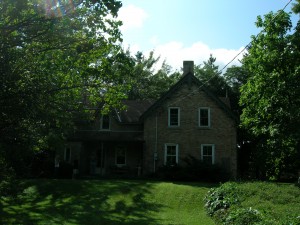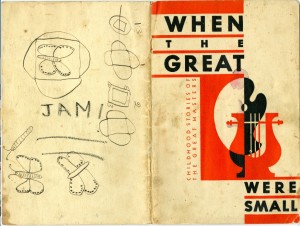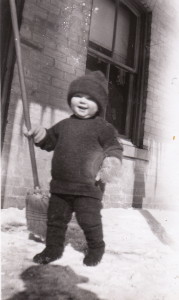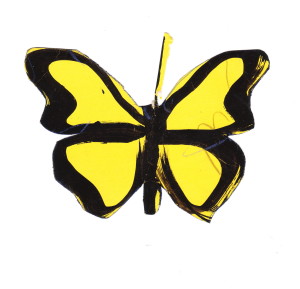In his November 2016 lecture on “James Reaney and Music”, composer John Beckwith recalls James Reaney writing that “My experiences of opera were scrubbing kitchen floors on Saturday and hearing the Met broadcasts as I did.” What did Reaney mean, John wondered, his kitchen had more than one floor?

Yes, it turns out that “scrubbing kitchen floors” plural is accurate because the farmhouse where James Reaney was born in 1926 had two kitchens – a summer kitchen used May through October in the newer part of the house, and a winter kitchen used November through April in the older part of the house.
In his 1992 autobiography*, James Reaney reflects on “Shelter” and his first home:
[From his diary:] “Tuesday, January 3, 1939 – Wind: east, a sleety and very cold wind. Weather: very cold, snow deep, hard to get around.” Two months before we would have moved the stove and ourselves into the winter kitchen; a constant house-in-winter image, therefore, was passing through the summer kitchen, all cold and deserted, on the way to the pump or the barn. […] [p. 297]
On the topic of “Food”, he describes making toast in the summer kitchen:
“The summer kitchen would be filled with smoke resulting from our toasting of thick bread slices over, top of stove lifted, lids and all, open fire. As we sat down to breakfast, the kitchen was transformed by big, blue sun ladders coming in the east windows and slanting down to the linoleum.” [p. 296]
“Asked to name first foods that impressed me almost to the point of saying ‘dietary gods,’ I should have to say OATMEAL, MILK, WATER, TOAST. By many a mile, oatmeal comes first although the hard, hard water from our hundred-foot well is hard to beat.” [p. 295] […]
Now, the farm actually produced oats, a beautiful crop to watch turning from blue-green mist to yellow curved spikelets to dead-white ripe spilling into the granary from the threshing machine pipe. But the pursuit of status symbols prevented us from slipping backwards into primitivism, and my parents shopped for either Quaker Oats (not instant, long cooking; instant is an abomination) or rolled oats (plain brown paper bag). Sometimes in summer (see Alice Munro) we hereticized to Puffed Oats, shot from a cannon and supported by a radio serial called “Sunny Jim.” We even backslid to Kellogg’s Cornflakes or even Rice Krispies – again a radio programme tugged at us, in this case Irene Wicker’s “Singing Lady”; and for a box top from either of the above you could obtain a booklet called When the Great Were Young [sic] – stories of Michelangelo, Giotto, Bach − filled with notions of how to escape if need be from the farm one day. […] [p. 296]

* These autobiographical excerpts are from James Crerar Reaney, Contemporary Authors Autobiography Series, Volume 15, pages 295-297, Gale Research Inc., Detroit, 1992.


